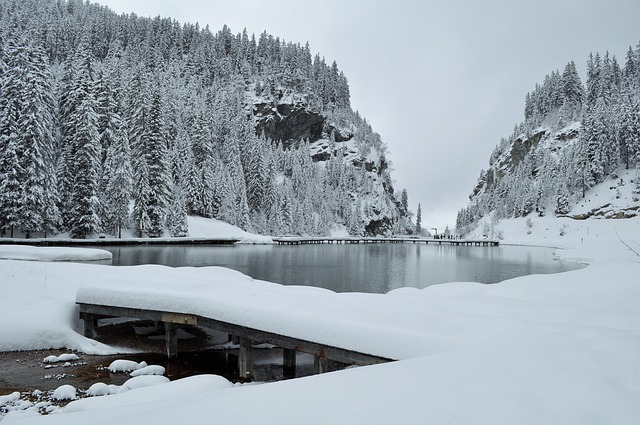La location de logements sur Airbnb est devenue une option populaire pour les voyageurs et les hôtes souhaitant profiter d'une expérience unique et authentique. Cependant, il est essentiel de s'assurer que votre propriété est correctement protégée en cas d'incident ou de dommage. Dans cet article, nous examinerons l'importance de l'assurance pour les locations Airbnb et les différentes options disponibles pour assurer votre tranquillité d'esprit en tant qu'hôte.
- L'assurance de responsabilité civile :
L'assurance de responsabilité civile est l'une des couvertures les plus essentielles pour les hôtes Airbnb. Elle vous protège en cas de dommages corporels ou matériels causés par un tiers pendant son séjour dans votre logement. Par exemple, si un voyageur se blesse en trébuchant dans votre appartement ou endommage accidentellement votre mobilier, l'assurance de responsabilité civile vous aidera à couvrir les frais médicaux ou de réparation associés.
- L'assurance AirCover:
Airbnb propose une vérification approfondie de l'identité des voyageurs en contrôlant des informations telles que le nom, l'adresse et la pièce d'identité. Ils utilisent une technologie exclusive pour analyser des centaines de facteurs et bloquer les réservations à haut risque de dommages matériels ou de nuisances. La plateforme offre une protection complète jusqu'à 3 millions de dollars US pour les dommages causés par les voyageurs, y compris les œuvres d'art, les objets de valeur, les véhicules, les animaux, les pertes de revenus et les frais de nettoyage en profondeur. De plus, une assurance responsabilité civile de 1 million de dollars US est incluse, ainsi qu'une assistance sécurité 24h/24 pour garantir la tranquillité d'esprit des hôtes.
- La caution du logement:
La caution Airbnb est une somme d'argent que le voyageur verse au propriétaire pour couvrir d'éventuels dommages causés au logement pendant son séjour. Elle est remboursée au départ du voyageur s'il n'y a pas de problème. La caution vise à sécuriser la transaction pour les deux parties impliquées dans la location.
- L'assurance propriétaire non occupant:
L'assurance propriétaire non occupant, également connue sous le sigle PNO, est une assurance destinée aux propriétaires d'un bien immobilier qui ne l'occupent pas eux-mêmes. Cette assurance est principalement souscrite par les propriétaires qui mettent leur bien en location, qu'il s'agisse d'une location vide (résidentielle ou commerciale) ou d'une location meublée (location saisonnière, location étudiante, location Airbnb, etc.).
Voici les principaux points à connaître sur l'assurance propriétaire non occupant :
- Protection du bien immobilier :
L'assurance PNO couvre les dommages matériels causés au bien immobilier lui-même. Cela inclut les sinistres tels que les incendies, les dégâts des eaux, les tempêtes, les cambriolages, etc. En cas de sinistre, l'assurance PNO peut prendre en charge les frais de réparation et de remise en état du bien.
- Responsabilité civile :
Une assurance propriétaire non occupant inclut également une garantie responsabilité civile. Cela signifie que si le bien loué cause des dommages à un tiers, l'assurance PNO prendra en charge les indemnités et les frais de défense juridique en cas de litige.
- Couverture des parties communes :
Dans le cas d'une copropriété, l'assurance PNO peut également couvrir les parties communes de l'immeuble, à condition que la responsabilité de leur entretien incombe au propriétaire.
- Absence de couverture du contenu du locataire :
Il est essentiel de noter que l'assurance PNO ne couvre pas les biens personnels du locataire. Ce dernier doit souscrire une assurance habitation spécifique pour assurer ses effets personnels et se protéger contre les risques locatifs.
- Obligation légale :
Bien que l'assurance PNO ne soit pas une obligation légale en France, elle est fortement recommandée, voire exigée par certaines agences immobilières ou par le règlement de copropriété. De plus, en cas de sinistre sans assurance, le propriétaire sera responsable des coûts de réparation, ce qui peut être préjudiciable sur le plan financier.
En conclusion, l'assurance propriétaire non occupant est une protection essentielle pour les propriétaires qui mettent leur bien immobilier en location. Elle permet de se prémunir contre les risques liés à la location et d'éviter d'importantes dépenses en cas de sinistre. Il est donc conseillé de souscrire une assurance PNO adaptée à ses besoins spécifiques, en vérifiant les garanties proposées et les exclusions éventuelles.
Conclusion :
L'assurance pour la location Airbnb est un aspect essentiel de la gestion de votre propriété en tant qu'hôte. Une couverture adéquate vous protégera contre les risques liés à la location à des tiers, et vous offrira une tranquillité d'esprit tout en accueillant des voyageurs. Avant de souscrire une assurance, prenez le temps de comparer les différentes offres, lisez attentivement les conditions et exclusions, et choisissez celle qui correspond le mieux à vos besoins spécifiques en tant qu'hôte Airbnb. Une assurance bien choisie vous permettra de profiter pleinement des avantages de la location sur Airbnb sans vous soucier des imprévus.





